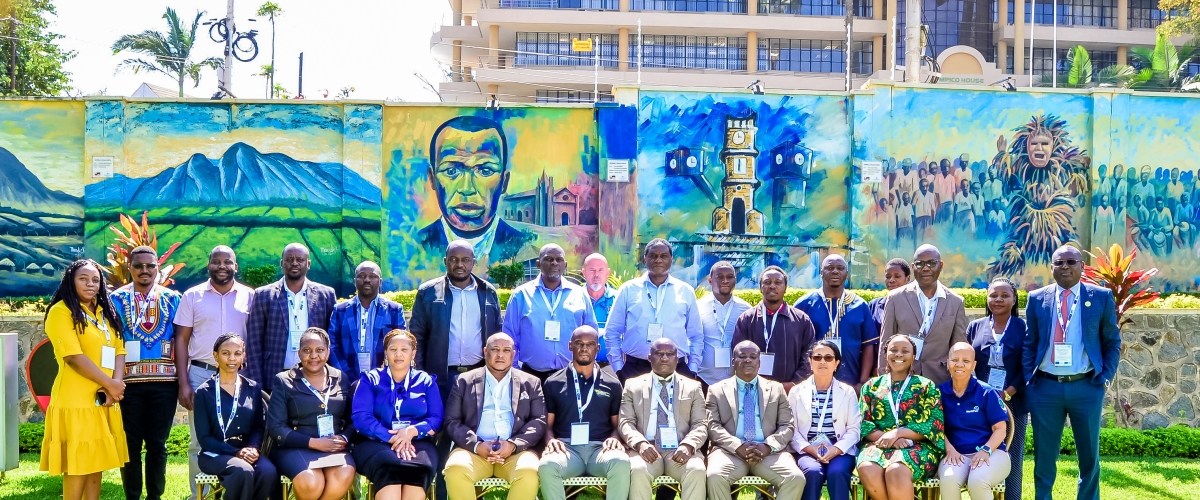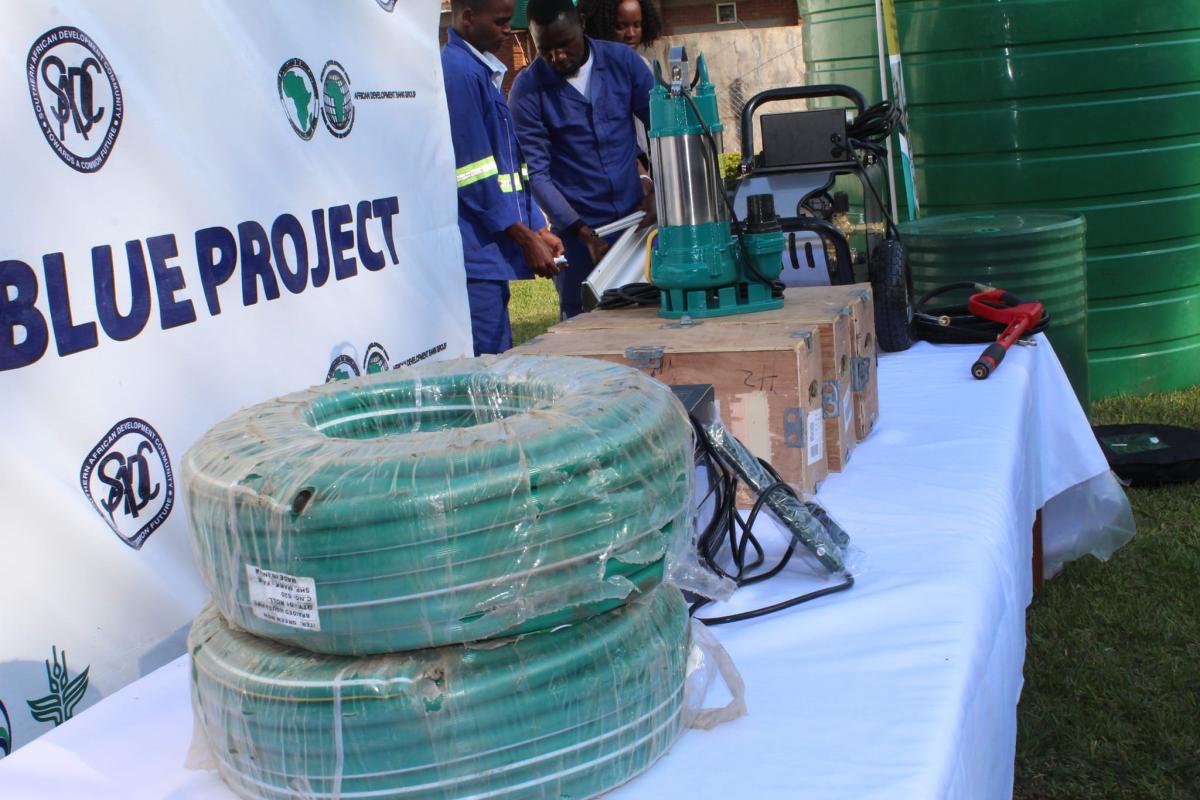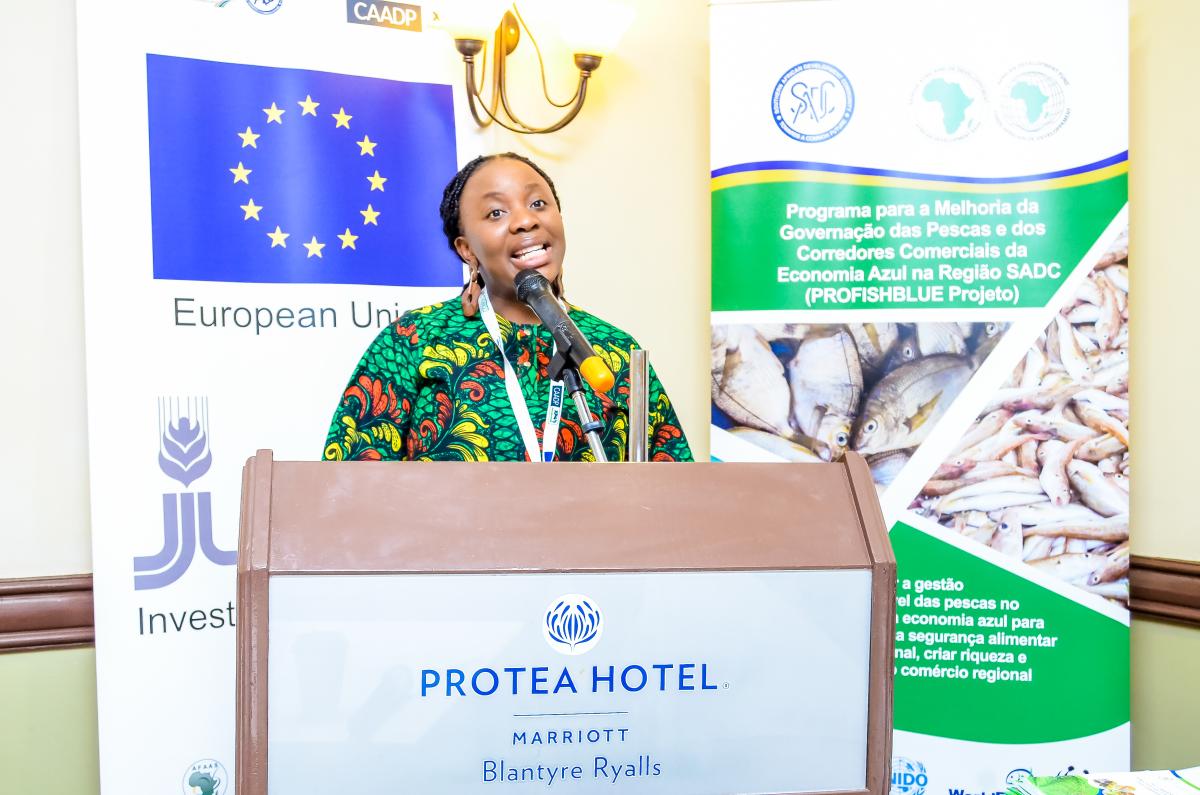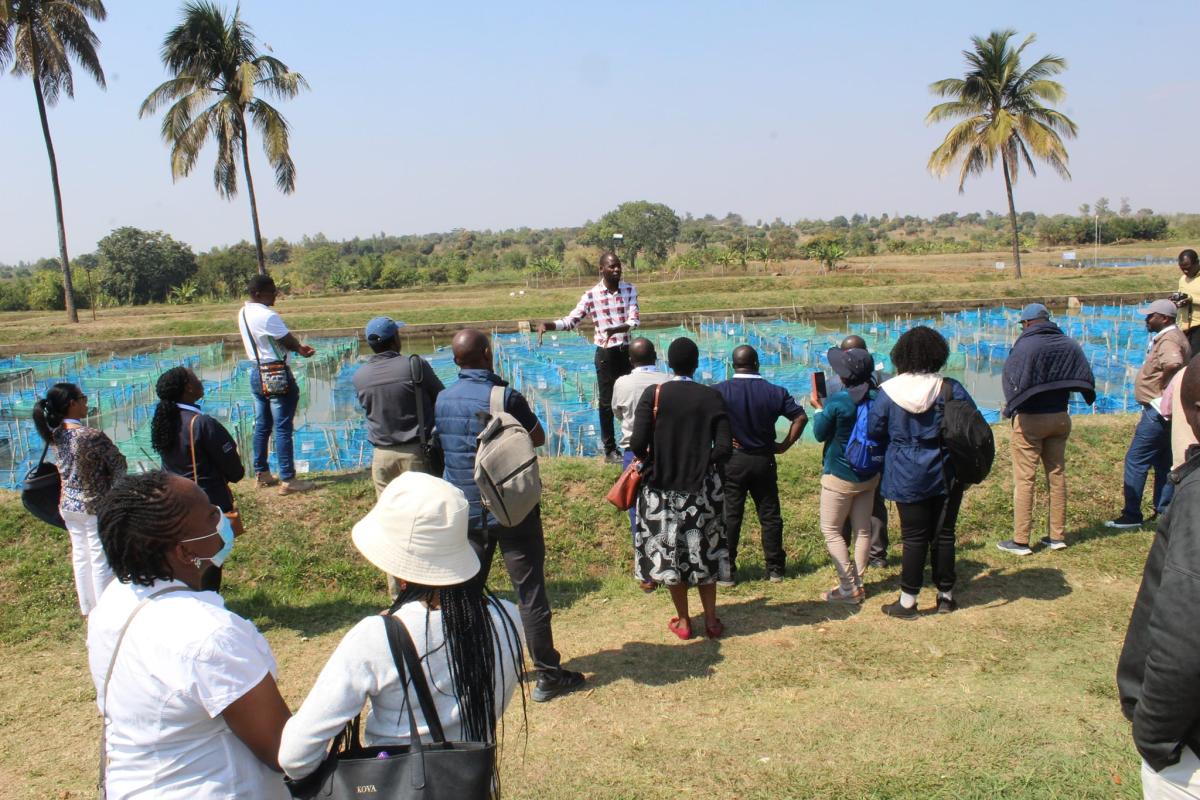
By Bridget Kakuwa-Kasongamulilo (CCARDESA Secretariat), KATRINA Hilundwa (SADC Secretariat), and Alexander Kefi (SADC Secretariat)
SADC has recognised the importance of indigenous fish species in biodiversity risk reduction and improving productivity and production in the aquaculture sector. In 2017, the SADC Ministers responsible for Agriculture, Food Security, Fisheries, and Aquaculture approved the development of a SADC Regional Genetic Improvement Programme (GIP) to support sustainable regional tilapia value chains and enhance economic and socioeconomic opportunities across the region.
On 22 – 26 July 2024 in Blantyre, Malawi, a Proposal Development Writeshop of the Regional Fish Genetic Improvement Programme was held. The Writeshop was a joint initiative by the SADC Secretariat, the Centre for Coordination of Agricultural Research and Development for Southern Africa (CCARDESA), WorldFish and the Government of Malawi – Department of Fisheries.
Blantyre was selected as the ideal place to host the Writeshop as it is near the breeding nucleus of the Shire tilapia, which is located at the National Aquaculture Centre (NAC) in Domasi, Zomba, Malawi. This presented an opportunity for 28 participants, consisting of fish genetic experts, biologists, hatchery managers, and aquaculturists from the public and private sectors, research institutions, and academia from eleven (11) participating SADC Member States to develop a common project to support GIPs in the region. The workshop also helped to strengthen Member States’ commitments, willingness, ownership, and capacity in proposal writing and resource mobilisation.
On 22 July 2024, the participants embarked on an excursion of the breeding nucleus for the Shire tilapia (Oreochromis Shiranus) at the National Aquaculture Centre (NAC) in Domasi, Zomba. This excursion coincided with an official Handover Ceremony of Hatchery Equipment to the Malawi Department of Fisheries to support the Genetic Improvement Programme (GIP) of Shire tilapia. The SADC Secretariat, in partnership with WorldFish under the PROFISHBLUE project, is expanding efforts by providing hatchery equipment to support research and production of high-quality germplasm for distribution in the region.

The excursion was followed by the writeshop from 23 – 26 July 2024 in Blantyre, Malawi. A CCARDESA Board Member, Ms Amanda Chembezi, opened the Writeshop. She highlighted this effort as a significant milestone towards building a regional R&D programme within CCARDESA programming to support the SADC efforts of translating the approved SADC fisheries and aquaculture strategies.

CCARDESA’s renewed focus on research priorities is mostly on the underrepresented sectors such as livestock, forestry, apiculture, fisheries, and aquaculture in the region. Ms Chembezi emphasized that since 2023, CCARDESA has taken deliberate steps to include aquaculture and fisheries sectors in the efforts to develop regional project proposals. The inclusion of these two sectors in its regional project proposals ensures comprehensive development across the agricultural sector, especially at a challenging time when member states are grappling with the effects of climate change and high youth unemployment.
She indicated her gratitude for the Writeshop in implementing a decision of the 2024 SADC Ministers responsible for Agriculture, Food Security, Fisheries, and Aquaculture to broaden the coverage of the regional genetic improvement program to include Tanganyika Tilapia.
The Director of Fisheries at the Department of Fisheries, Dr Hastings Zidana, who welcomed participants to Blantyre, stressed that the region produces 180,000 metric tons. However, there is a target to produce 330,000 MT by 2030. The gathering of this Writeshop is a learning process based on the experience of Malawi and Zambia, which have National Breeding Programmes running with support from the African Development Bank (AfDB). However, he reacted that to achieve the target by 2030, the regional GIP needs to upscale these national GIPs from generation three to six. Such programs require partnerships and investors to support national efforts as they are expensive to maintain.
Dr Motseki Hlatshwayo, the Fisheries Technical Advisor and PROFISHBLUE Project Manager at the SADC Secretariat, acknowledged the work being done at the National Aquaculture Development Centre in Domasi on Shire tilapia and informed the participant about a similar initiative on Three-spotted tilapia in Kitwe, Zambia. He also applauded Mozambique for their work in the genetic improvement of Mozambique tilapia and South Africa for starting work on this species. The efforts of the Government of the Republic of Tanzania in establishing the nuclei breeding programme for the newly added Tanganyika tilapia were also noted.

Dr. Hlatshwayo thanked CCARDESA for supporting the development of the “Concept Note on Genetic Improvement of Indigenous Fish Species for Enhanced Aquaculture Productivity and Production in SADC Region (GIFISH Project).” The Concept Note forms the basis for negotiating the next phase of the PROFISHBLUE Project through the African Development Bank (AfDB) and for scaling up the already identified fish species.
During the four-day plenary sessions and parallel-group discussions, participants shared case studies, best practices, and knowledge about the status of aquaculture research programmes in their respective countries. They also discussed sustainability and dissemination strategies for genetic improvement programmes. The primary outcome of the Writeshop was the reviewed and improved GIFISH Project Concept Note, which aligns with national and regional plans/programs and meets the AfDB requirements for a bankable proposal to strengthen and support the sector. CCARDESA support for the writeshop was provided under the CAADP-XP4 Programme which is funded by the European Union and administered by the International Fund Agricultural Development(IFAD).





